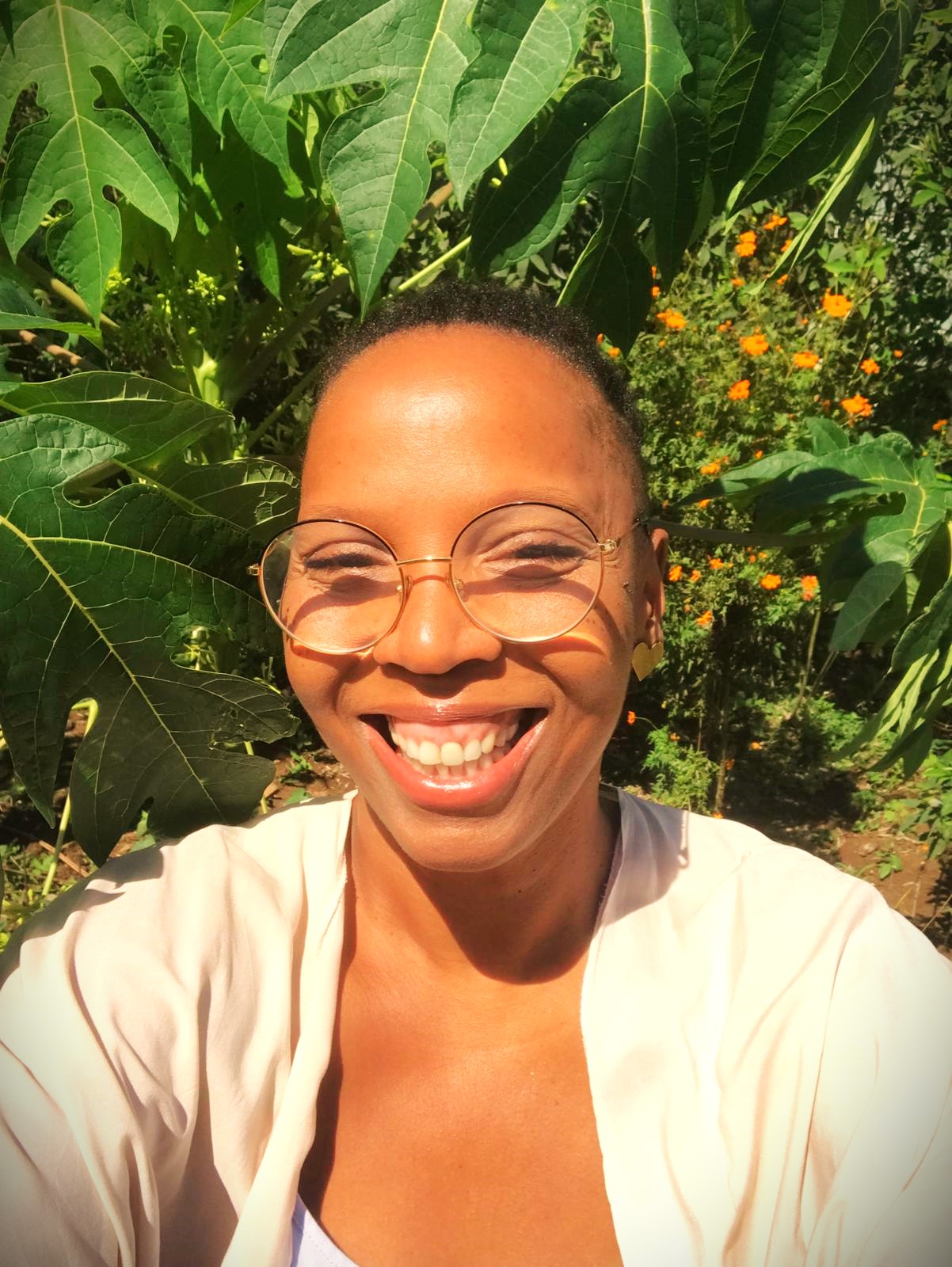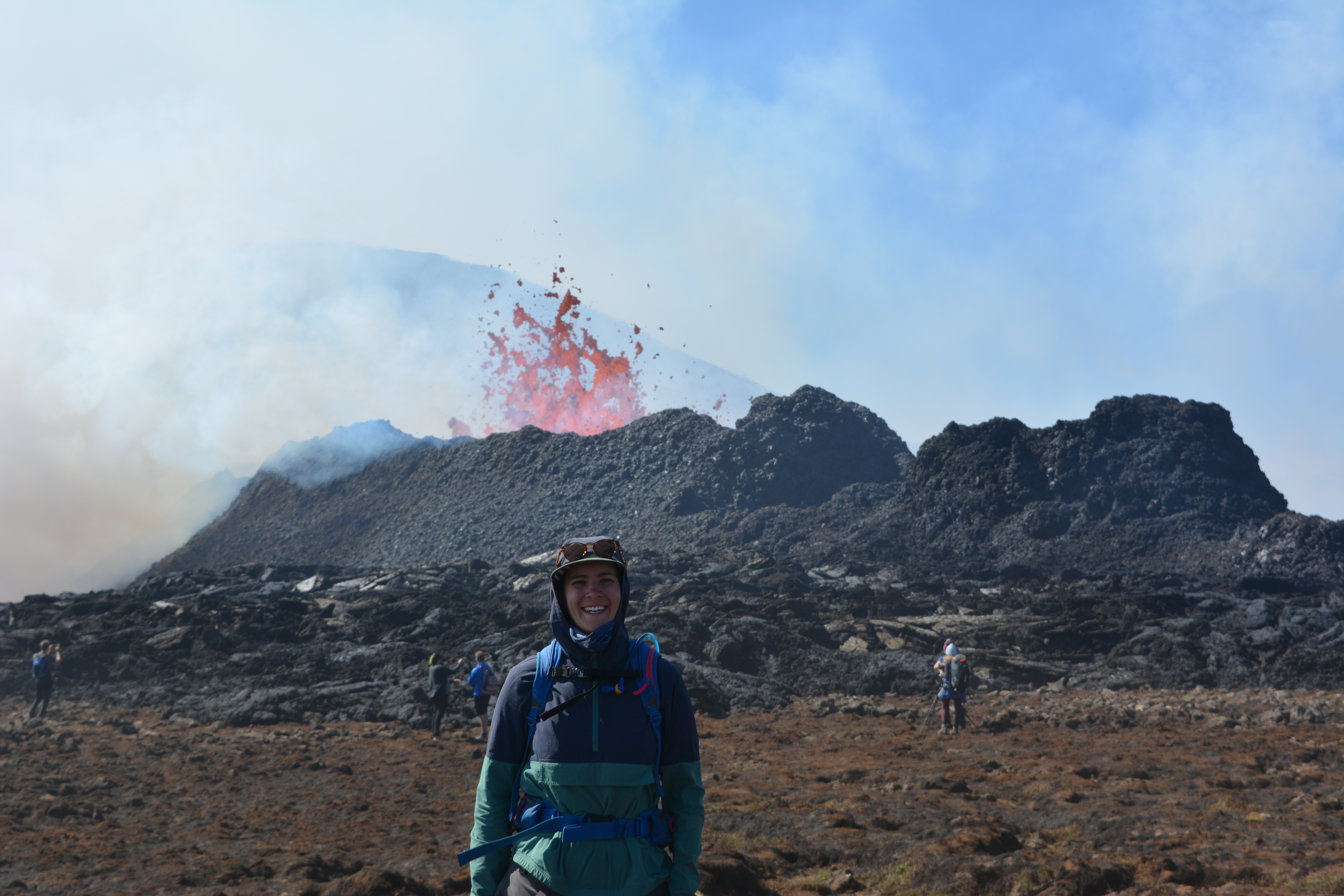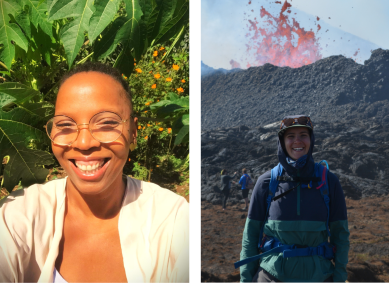Rio Tinto Scholarships for Diversity in Science at INRS
Our first recipients announced
The first recipients of the new Rio Tinto Scholarships for Diversity in Science at INRS have finally been announced. They are Caroline Flory-Célini, a doctoral student in urban studies under the direction of Professor Nathan McClintock, and Sophie Hastings Leiter, a doctoral student in earth sciences under the direction of Professor Pierre-Simon Ross. Both stood out for the quality of their work and their research into sustainable development issues. We extend our warmest congratulations to them.

“This scholarhip comes at just the right moment in my academic career, which is full of motivation but also sometimes full of doubts... It will give me the means to pursue my research more serenely on a subject that aims to promote living together.”
– Caroline Flory-Célini, doctoral student in urban studies

“I am aware of my position as both a marginalized and privileged person in scientific spaces. I undertake to use this privilege to welcome and support others who do not feel traditionally welcome in the earth sciences.”
– Sophie Hastings, doctoral student in earth sciences
We asked them a few questions to help you discover their own atypical backgrounds, which illustrate the diversity of the student community at INRS.
Caroline Flory-Célini, doctoral student in urban studies
What brought you to INRS? What do you value about your experience to date?
My path led me to INRS because of my passionate interest in researching the inclusion of all communities, particularly black Afrodescendants, in urban agriculture in Montreal. To date, my experience at INRS has been rewarding, allowing me to deepen my knowledge, develop advanced research skills and work on a meaningful project that contributes to the understanding of inclusion and equity.
Can you describe the challenge and impact of the research presented in your doctoral project?
My research aims to understand the mechanisms of food injustice experienced by Afrodescendant communities in relation to urban agriculture in Montreal. By identifying the visions and practices of these communities, the research seeks to provide equitable solutions. The potential impact lies in the creation of in-depth knowledge on inclusion and participation, thus promoting fairer policies and practices in the field of urban agriculture. The originality of my research lies in placing Black geographies in a francophone context, by studying the trajectories of often-invisibilized communities.
What environmental and sustainable development issues do you intend to contribute to?
My work aims to address several of the United Nations' Sustainable Development Goals. These include fighting poverty, promoting gender equality, reducing inequality, creating decent jobs, strengthening sustainable communities, promoting responsible agricultural practices and combating climate change.
What does winning this scholarship mean to you?
Winning the Rio Tinto Scholarship for Diversity in Science at INRS is a crucial opportunity. It will enable me to further my research, amplify my impact in the field of environmental inclusion and make a significant contribution to diversity and inclusion in science. It also represents recognition of my commitment and efforts as a black woman in the field of research.
What are your plans for the future?
I plan to actively pursue my research by analyzing existing literature, strategic reports and conducting interviews to gather data essential to my project. Disseminating the results of my research via infographics and fact sheets will help raise awareness of environmental inclusion issues. Winning the grant will enable me to devote more energy to this research, strengthening its potential impact on urban agriculture policies and practices in Montreal.
Sophie Hastings Leiter, doctoral student in earth sciences
What brought you to INRS? What do you take away from your experience so far?
I came to INRS for my PhD project. I am interested in volcanoes that erupt under water or ice and there was an opportunity for research in that field at INRS. I was already living in Canada while doing my masters at UBC, but moving to Quebec also allowed me to be closer to my family in Vermont. So far, I have enjoyed my experience here. My project involves a lot of field and lab work so I’ve learned a lot of new skills. I recently had the opportunity to travel to Guatemala to present my work, which was really fun and interesting.
Can you describe the challenge and impact of the research presented in your doctoral project?
My PhD work is focused on understanding the eruptive processes of phreatomagmatic volcanoes. These types of volcanoes, which occur when magma interacts with groundwater, tend to be more explosive than their dry counterparts. We are seeking to better understand the moment of eruption through the ash that is created. This sort of information is used to better understand the eruptive dynamics of phreatomagmatic volcanoes, which informs hazard mapping and planning.
What are the environmental and sustainable development issues to which you intend to contribute?
Though large-scale volcanic processes exist largely outside of the influence of climate processes, climate change will exacerbate existing issues in hazard prediction and management. Phreatomagmatic eruptions are typically more explosive than their magmatic counterparts. Whether an eruption will happen is determined by large-scale sub-surface processes unrelated to climate. However, whether an eruption will be magmatic or phreatomagmatic is largely influenced by the eruptive environment.
If regions get wetter or drier in response to climate change in may influence eruptive style, making the job of creating hazard maps and keeping populations safe harder. Additionally, as all systems are stressed by climate change and an increase in weather-related natural disasters, good volcano disaster preparedness becomes even more crucial. As the environmental systems into which volcanoes erupt become more complicated and emergency response becomes more stressed, well informed hazard planning becomes more and more important.
What does it mean to you to win this scholarship?
I am very honored to have won this scholarship. It is very validating to have my scientific contributions recognized and encouraged. I am also aware, however, of my position as a person who is in some ways both marginalized and privileged in science spaces. I am committed to using the privilege that I do have to welcome and support other people who have not traditionally felt welcome in the Earth Sciences. This scholarship will also allow me to more fully engage in my studies and hopefully attend more conferences, which are excellent opportunities to meet other volcanologists and expand by understanding of the field.
How do you see things going forward?
Once I finish my PhD, I would like to teach at the undergraduate level. I was very lucky to receive excellent mentorship during my bachelor’s degree and I hope to be able to provide that for future students. I am interested to continue studying phreatomagmatic volcanoes and learn more about hazard planning. Ultimately, I would like to work with communities at risk from volcanic eruptions to make hazard management plans.
The competition was managed by INRS’s Service des études supérieures et de la réussite étudiante (SESRE) team. It attracted a high volume of applications. Applications were reviewed by two committees made up of SESRE director Philippe-Edwin Bélanger, scholarship liaison officer Joanie Lavoie, and professors Jacob Stolle, Éric Déziel, Kulbir Kaur Ghuman, and Emanuele Orgiu, to whom we are grateful.
The Foundation warmly congratulates its two laureates and sincerely thanks all those who applied. We wish them every success in their future endeavours. We would also like to extend a very special thank you to all those who, in one way or another, contributed to the awarding of these scholarships, and especially to Rio Tinto Alcan for its generous support.
About the Rio Tinto Scholarships for Diversity in Science
The Rio Tinto Scholarships for Diversity in Science at INRS aim to promote the representation of a diverse range of students in the sciences. More specifically, they support women, sexual or gender minorities, people with disabilities, aboriginal people, people from racialized or ethnic minorities and neurodivergent people in the next generation of scientists trained at the Institut national de la recherche scientifique (INRS) to tackle the various issues affecting the environment and sustainable development.
They are made possible by a generous commitment of $60,000 from Rio Tinto Alcan. As of this year, two $15,000 scholarships are available to enhance the circumstances of the recipients.
The scholarship is one of nine programs initiated by the Foundation to support the INRS student community. There’s still time to apply for our three winter scholarship competitions, which close on April 12.

